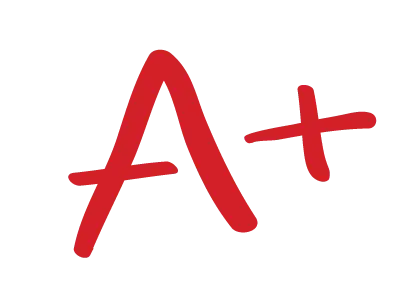A self-reflection paper that examines the ways that the issues, identified in the term paper, interact and relate to one another to impact their development. The self-reflection will also include an interview with two adults in two different stages of life about how the issues identified in the term paper play out, interact, and affect the person’s life at different points in development. The self-reflection should be at least three pages (750 words). This assignment addresses: GE Learning Outcome #2– Recognize the interrelation of the physiological, social/cultural, and psychological factors on their development across the lifespan.
Guidelines
WRITE THIS ESSAY FOR ME
Tell us about your assignment and we will find the best writer for your paper.
Get Help Now!Overview: Research clearly demonstrates that our well-being at one developmental stage of life has a strong impact on our well-being at later developmental stages. This appears to be true not only in childhood but also in adolescence and adulthood. Thus, in this assignment you will be exploring how developmental experiences (e.g., interrelations of the physiological, social/cultural, and psychological factors) at your age continue to shape and influence development at later ages.
Specifically, in this assignment you will complete a self-reflection and interview two different adults who are in later stages of development than you. For the purposes of this assignment, you will use the topic you wrote about in your term paper.
The assignment should be at least 750 words (approximately 3 pages) and is worth 40 points.
[A] Introduction: Start the assignment by providing a brief over-view of your term paper (what the topic was and describe in one sentence each the factors you examined in the cognitive, social, emotional, and physical domains). Indicates what the paper will do (e.g., self-reflection and two interviews about the topic of your term paper).
[B] Self-Reflection: You will need to refer back to your term paper to address the following questions. You may want to refer back to your textbook to help you think about the kinds of changes that occur cognitive, socially, emotionally, and physically as you move across the lifespan. Please write this in an essay format using good grammar and spelling. Make sure you organize the self-reflection in such a way that it is clear, cohesive, and obvious where you are addressing each question. Aim for one paragraph for the self-reflection.
1. How old are you, where do live, what is your major, and when will you graduate.(Please ignore this question)
2. How do you think the {topic of your term paper} will influence or be influenced by the inter-relations of the physical, social, emotional, and cognitive factors you identified in the term paper as you move into the next stage of development (e.g.,
young adulthood, middle adulthood, or late adulthood)? {If you have not personally experienced the topic, reflect on the topic in the context of someone (not named) who is experiencing the topic}.
3. What kinds of changes will occur in the {topic of your term paper}given the kinds of changes that are likely to occur in the physical, social, emotional, and cognitive factors you identified in the term paper, as you move into the next developmental
stage (e.g., young adulthood, middle adulthood, or late adulthood)?
4. What kinds of things can you do at your age to help promote a successful transition to the next stage of development in the context of the {topic of your term paper} and the physical, social, emotional, and cognitive factors you identified in the term paper.
[C] Interviews: You will need to find two adults at different life stages from each other and who are both older than you. Use the following questions for your interviews. However, in your write-up you should summarize their responses (in essay format) rather then reporting verbatim what they said in the interviews. Here too, you will need to use good grammar, spelling, and organization that makes the essay cohesive, and obvious where you are addressing each question. You should summarize each interview separately. Note you may have to adapt the questions and/or the way you describe the topic of your term paper in these interview questions. Be sure to probe for specific answers to your questions. Aim for one paragraph for each interviewee.
1. What is your age, occupation, and education? Where did you live when you were my age? What were you doing (occupation, family, school, hobbies) when you were my age?
2. Did you experience {topic of the term paper}when you were my age? What was that experience like? How did the {topic of the term paper} and the way you experienced it shape your life as you moved into{the next stage of development – provide a specific period here that is relevant to the person you are interviewing}. {Note: if they did not experience the topic of your term paper: (a) ask them why they think it was not an issue for them; (b) ask them to describe a developmental experience that was influential when they were your age.}
3. Provide them with a little information about the cognitive, social, emotional, and physical factors you reviewed in your paper and ask them about the influence of
these factors specifically in the context of {your term paper topic OR the topic they identified for themselves} as they moved into the next stage of development.
4. Is the {topic of your term paper OR the topic they identified for themselves} still influencing your well-being today? How? Why do you think that? What kinds of things can a person do at your age to promote well-being cognitively, socially, emotionally, and physically in the context of this topic? {If this topic is no longer influencing their well-being: (a) ask what topic is currently influencing their well-
being; (b) ask them to explain why and how; and (c) ask them to indicate what kinds of things a person can do at their age to promote well-being cognitively, socially, emotionally, and physically in the context of this new topic?}
5. At the end of the interview ask them if they have any words of wisdom for you.
[D} Conclusion: Sum-up and draw some conclusions about, by looking across the self-reflection and two interviews, the ways that cognitive, social, emotional, and physical factors inter-relate to influence development now and in the future. Provide one or two suggestions for promoting well-being now so that you transition to the next stage of development successfully.
Introduction (0-4 Points):
0 Points 1 Point 2 Points 3 Points 4 Points
Does not provide an
introduction.
Provides a very brief, vague or
general introduction..
Provides an introduction that either
describes the term paper
topic or provides an over-view of
the assignment.
Provides an introduction
that does two of the following: describes the term paper
topic; describes the four
domains; provides an
over-view of the assignment .
Provides an introduction
that: describes the term paper topic; describes
the four domains;
provides an over-view of the
assignment.
Self-Reflection (0-9 Points)
0-1 Points 2 Points 3-5 Points 6-7 Points 8-9 Points
Questions are given shallow
responses, and many aspects are neglected.
Yes-or-no answers. Little to no use of
explanations, details, or
examples. Little or no evidence of attempts to
analyze personal
development in the context of the topic and domains over time. May not
have a self-reflection.
Questions are addressed
superficially, with some aspects
neglected. Only occasional use of explanations,
details, and examples.
Some attempts to analyze personal
development in the context of the topic and domains over
time
All aspects of most questions are addressed, or most aspects of all questions are addressed.
Frequent details,
explanations, and examples. Clear attempts
to analyze personal
development in one of the
following: the context of the
topic; the domains; or over time.
All aspects of the questions
are addressed. Each answer
includes details, explanations, or examples that demonstrate
understanding of personal
development. Analyses two of
the following: the context of the topic; the domains; or over time.
All aspects of the questions
are addressed. Answers are thoroughly
fleshed out with details,
explanations, and relevant
examples that clearly illustrate understanding
of personal development.
Analyzes personal
development in the context of the topic; the domains; and
over time.
Interview #1 (0-9 Points)
0-1 Points 2 Points 3-5 Points 6-7 Points 8-9 Points
Provides verbatim transcript of the
interview. Does not attempt to analyze development over time, the topic, or the domains May
not have the interview.
Briefly summarizes
the interview in vague or
general terms. Minimal
attempt to analyze
development over time, the topic, or the domains.
Clearly summarizes the
interview. Analyzes one of
the following: development over time; the topic; or the
domains
Clearly and effectively
summarizes the interview.
Analyzes two of the following: development over time; the topic; or the
domains.
Clearly and effectively
summarizes the interview and
provides examples and explanations. Analyzes all of the following: development over time; the topic; or the
domains.
Interview #2 (0-9 Points)
0-1 Points 2 Points 3-5 Points 6-7 Points 8-9 Points
Provides verbatim transcript of the
interview. Does not attempt to analyze development over time, the topic, or the domains May
not have the interview.
Briefly summarizes
the interview in vague or
general terms. Minimal
attempt to analyze
development over time, the topic, or the domains.
Clearly summarizes the
interview. Analyzes one of
the following: development over time; the topic; or the
domains
Clearly and effectively
summarizes the interview.
Analyzes two of the following: development over time; the topic; or the
domains.
Clearly and effectively
summarizes the interview and
provides examples and explanations. Analyzes all of the following: development over time; the topic; or the
domains.
Conclusion (0-4 points)
0 Points 1 Point 2 Points 3 Points 4 Points
Does not
provide a
conclusion
Provides a very
brief one to two
sentence vague
summary.
Provides a clear
but general
conclusion about
how
development
influences
well-being now
and in the future.
Provides a clear
conclusion about
how
development
influences
well-being now
and in the future
by drawing on
the reflection
and the
interviews and
the domains OR
provides
suggestions for
promoting
well-being.
Provides a clear
conclusion about
how development
influences
well-being now
and in the future
by drawing on the
reflection and the
interviews and by
examining the
four
developmental
domains. Provides
suggestions for
promoting
well-being.
Writing Quality and Formatting (0-5 Points)
0 Points 1-2 Points 3 Points 4 Points 5 Points
Thoughts are
not organized
and presented
weakly.
Significant
grammatical
errors. Paper is
not double
spaced, with
one-inch
margins, and
12-point font
Organization is
cluttered or
scattered.
Thoughts are
difficult to
follow. Many
grammatical
errors. May not
meet all of the
formatting
requirements.
Thoughts are
mostly
well-organized,
but occasionally
hard to follow,
OR errors in
spelling and
grammar distract
from the content.
Meets all the
formatting
requirements.
Thoughts are
presented clearly
and strongly, in
the student’s
own voice. Minor
errors in spelling
or grammar.
Meets all of the
formatting
requirements.
Thoughts are
presented clearly
and strongly, in
the student’s
own voice.
Personal style
adds to the
presentation.
Virtually no
errors in spelling
and grammar.
Very
well-organized
and meets all the
formatting
requirements.
Introducing our Online Essay Writing Services Agency, where you can confidently place orders for a wide range of academic assignments. Our reputable homework writing company specializes in crafting essays, term papers, research papers, capstone projects, movie reviews, presentations, annotated bibliographies, reaction papers, research proposals, discussions, and various other assignments. Rest assured, our content is guaranteed to be 100% original, as every piece is meticulously written from scratch. Say goodbye to concerns about plagiarism and trust us to deliver authentic and high-quality work.



